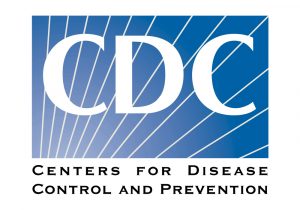June 2020 may forever be known as the month that international arbitration invaded the U.S. Supreme Court docket. In “Important International Arbitration Issues Fill Supreme Court Docket“, colleagues Richard Deutsch discuss how these rulings will likely impact critical strategic decisions early in international arbitrations.
PPP Extension Approved by Congress
Both the House and Senate passed legislation by unanimous consent to extend the deadline for applications for Paycheck Protection Program loans until August 8. In Congress Approves Extension of PPP, colleagues Matthew Oresman, Lori Panosyan, and Jenny Y. Liu discuss the extended deadline to apply for Paycheck Protection Program (PPP) loans.
Preserving Cash and Incentivizing Employees During a Pandemic
As COVID-19 reverberates through the real estate and construction industries, impacted companies should revisit their employee compensation programs to preserve cash and drive performance while maintaining legal compliance. This is particularly true for companies normally dependent on high rents in cities, where commercial tenants are trading brick-and-mortar office space for work-from-home arrangements, and freeing up employees—unshackled by any commuting concerns—to relocate in pursuit of lower housing costs.
A Court-Side Seat: Waters, Walls and Pipelines
Several interesting decisions have recently been made by federal and state courts.
FEDERAL APPELLATE COURTS
The U.S. Seventh Circuit Court of Appeals – ARCO Shifts from State to Federal and No Vigor for VIM
On June 18, 2020, the court decided the case of Baker, et al. v. ARCO, holding that the revised federal removal statutes authorize the removal to federal court of a state-filed complaint against several defendants by the former residents of an Indiana housing complex who contended that the defendants were responsible for the industrial pollution attributed to the operations of a now-closed industrial plant. The housing complex was constructed at the site of the former U.S. Smelter and Lead Refinery. During the Second World War, the plant produced products for the use of the government war effort, thus triggering the applicability of the federal removal statutes.
The Split-Roll Initiative Looms for California’s Property Tax System
This November, California voters will decide whether commercial and industrial properties will lose their Proposition 13 protection against property tax reassessment. In “The Split-Roll Initiative is Posted to Rock California’s Property Tax System“, colleagues Craig A. Becker, Richard E. Nielsen and Breann E. Robowski explain.
In the Wake of the Coronavirus: REIT Dividends
The pandemic’s financial impact adds another layer of complexity to REITs authorizing, declaring and paying dividends under Maryland law. In “REIT Dividends in the Wake of the Coronavirus,” colleagues Jeffrey B. Grill, Robert S. Logan and Ella M. Lvov discuss what Maryland REITs should consider using the tools at their disposal to structure distributions in a manner that preserves cash.
To Purchase of Realty Encumbered by Long-Term Leasehold, California Court of Appeal Concludes Transfer Tax Not Applicable
In 731 Market Street Owner LLC v. City and County of San Francisco (June 18, 2020), California appellate court affirms that local realty transfer tax does not apply when leasehold has a remaining term of 35 years or more. In “California Court of Appeal Concludes Transfer Tax Not Applicable to Purchase of Realty Encumbered by Long-Term Leasehold,” colleagues Craig A. Becker, Breann E. Robowski, Richard E. Nielsen, and Robert P. Merten III discuss an overview of a recent ruling.
Post-Pandemic Contracting with Systems Integrators
In responding to the COVID-19 pandemic, CIOs across all industries may decide to undertake IT initiatives to enhance business resiliency and capabilities while containing costs. Some of these initiatives may involve large, complex migrations and implementations of technologies that require the assistance of experienced systems integrators. In “Post-Pandemic Contracting with Systems Integrators,” colleagues Jeffrey D. Hutchings and Craig A. de Ridder discuss the key takeaways that CIOs need to consider before implementing new systems.
A Summary of California Tax Legislation AB 85
On June 15, 2020, the California Legislature passed Governor Newsom’s proposed tax legislation to raise additional income tax revenue to assist in balancing the California budget. (AB 85). The Senate and Assembly each achieved the two-thirds majority vote required for California tax increases (27-11 in the Senate and 56-20 in the Assembly), with Gov. Newsom expected to sign the legislation later this week. In “California Legislature Passes Governor Newsom’s Proposal to Suspend California Net Operating Loss Deductions and Limit Tax Credits during 2020 – 2022,” colleagues Jeffrey M. Vesely, Craig A. Becker, Carley Roberts and Breann E. Robowski discuss the tax legislation’s two principal components.
Management’s Duties and Responsibilities to Disclose COVID-19 Cases to Commercial and Residential Tenants While Also Protecting Privacy
 As COVID-19 cases continue to be reported by the hundreds on a daily basis, and as businesses begin the process of returning to the worksite, it is imperative that property managers—both commercial and residential—understand their duties and responsibilities with respect to disclosure of COVID-19 cases. As difficult as it may seem, timely and accurate disclosure that an individual who has tested positive for COVID-19 has been onsite is the best practice for everyone’s health and safety, and also to limit liability. Disclosure, however, must be undertaken carefully to ensure that the disclosure is given to the appropriate individuals and entities, that individual medical privacy is preserved, and that disclosures are made in compliance with all applicable laws, regulations and guidelines.
As COVID-19 cases continue to be reported by the hundreds on a daily basis, and as businesses begin the process of returning to the worksite, it is imperative that property managers—both commercial and residential—understand their duties and responsibilities with respect to disclosure of COVID-19 cases. As difficult as it may seem, timely and accurate disclosure that an individual who has tested positive for COVID-19 has been onsite is the best practice for everyone’s health and safety, and also to limit liability. Disclosure, however, must be undertaken carefully to ensure that the disclosure is given to the appropriate individuals and entities, that individual medical privacy is preserved, and that disclosures are made in compliance with all applicable laws, regulations and guidelines.




